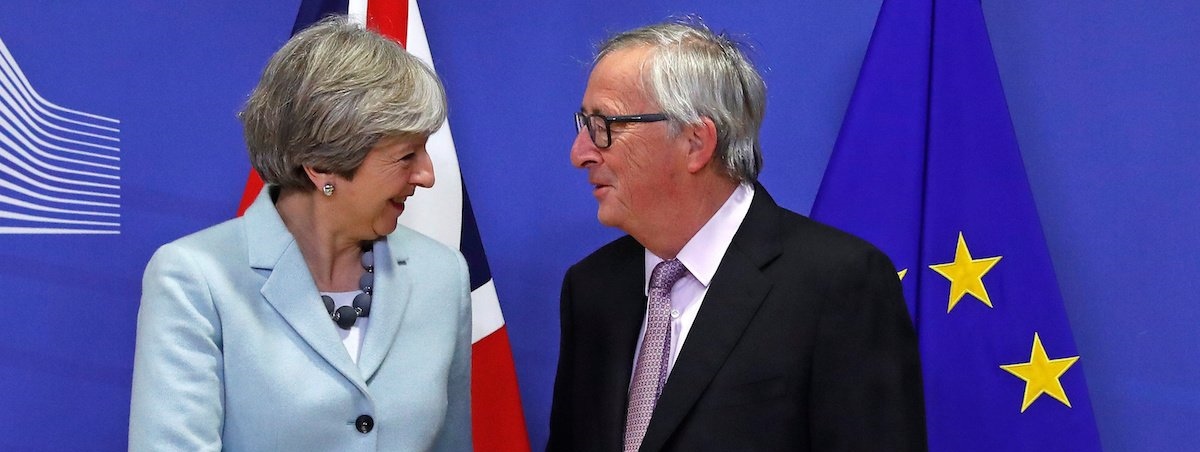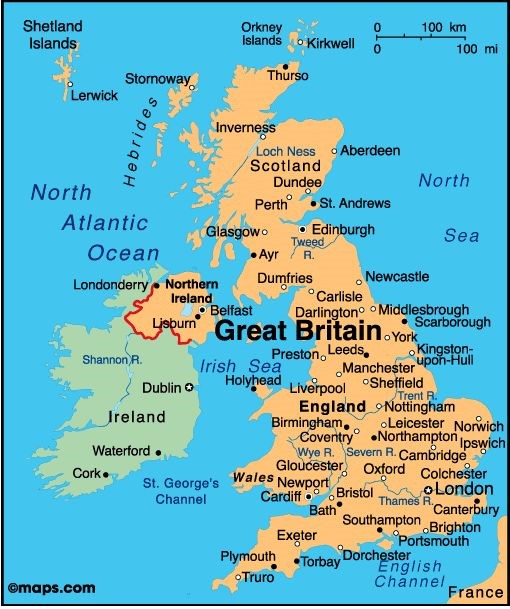Breakthrough in Brexit
December 8, 2017 | Expert Insights

UK Prime Minister Theresa May has now struck a last-minute deal with the EU regarding key issues and the negotiations would now move to the next phase.
Background
It was on June 23, 2016, when Britain narrowly voted to leave the European Union stunning the Europe
and the world in general. The EU employs a set of policies for its 28-member states that aims to ensure the free movement of people, goods and trade among other services. Britain is deeply intertwined with the workings of EU especially in regard to trade. Leaders of member nations have expressed their dismay over Britain leaving the body over the past year. German Chancellor Angela Merkel and Dutch Prime Minister Mark Rutte are among those who have been vocal about their apprehension to the unfolding events.
The Good Friday Agreement (GFA) or Belfast Agreement was a major political development in the Northern Ireland peace process of the 1990s. Northern Ireland's present devolved system of government is based on the agreement. The agreement also created a number of institutions between Northern Ireland and the Republic of Ireland, and between the Republic of Ireland and the United Kingdom. The Good Friday agreement which came into effect in 1999 put an end to checkpoints, security barriers and observation posts that had existed during the period of the Troubles.
The ‘Divorce Bill’
Britain plays an integral role in the finances of the European Union and its departure will leave the body with a deep hole in its pockets. EU wants a financial settlement from the UK especially regarding the various commitments made by former British Prime Minister, David Cameron, wherein he pledged UK’s commitment to the growth of EU. The ‘Divorce Bill’ pertains to the millions (perhaps billions) of dollars that Britain would have to pay in order to leave the EU.

Analysis
However, Brexiteers fear that this would mean there would be free movement of EU citizens through these borders and would cause problems. The negotiators would have to come up with a solution that works around custom checks and also ensures that this would not be a problem for Britain as well.
In order for the negotiations to enter the next phase (regarding trade in the greater EU region), the EU had set a deadline of December 14th, 2017. In this period, Britain had to come to an agreement regarding the Northern Ireland borders. The Brexit talks had stalled as the Democratic Unionist Party, the unionist political party in Northern Ireland, said it would not accept a deal on the Irish border which saw Northern Ireland treated differently from the rest of the UK. The UK government needed the support of the DUP for the Brexit talks to move forward.
UK Prime Minister Theresa May has now struck a last-minute deal with the EU regarding key issues and the negotiations would now move to the next phase. According to this deal, there will be no "hard border" in Ireland. The rights of EU citizens in the UK and the rights of UK citizens living elsewhere in the EU would also be protected in accordance to the deal.
The joint report states: "The UK will maintain full alignment with those rules of the Internal Market and the Customs Union which, now or in the future, support North-South cooperation, the all island economy and the protection of the 1998 Agreement."
Theresa May said, “Getting to this point required give and take on both sides. And I believe the joint report that is being published is in the best interest of the whole of the UK."
European Commission President Jean-Claude Juncker said, “Sufficient progress has now been made on the three terms of the divorce." He was referring to conditions the EU had requested regarding a number of issues including the Irish border.
Leo Varadkar, the Irish Prime Minister said that UK will now have Ireland’s support in future negotiations. He noted, “’I’ll be very frank. Brexit by its nature has strained relations between Ireland and the UK, of course it has, how could it not. Our role now is to get through that. I actually think because of this agreement that we have today, because we have the guarantees and the assurances that we sought, Britain will have no closer friend than Ireland.”
The Liberal Democrat leader, Vince Cable, welcomed news of the agreement, saying it would reduce the “risk of a catastrophic No Deal Brexit”. The two parties have decided on the need for a financial settlement which is "fair to the British taxpayer". The final number has not been announced.
Assessment
Our assessment is that if Theresa May had not been able to seal a deal today, then it would have hindered further negotiations. That would have resulted in a “hard Brexit” that would have severely strained relations between Britain and the EU nations. However, there will now be fresh fears that open border between Britain and Northern Ireland would result in free movement of EU citizens.








Comments